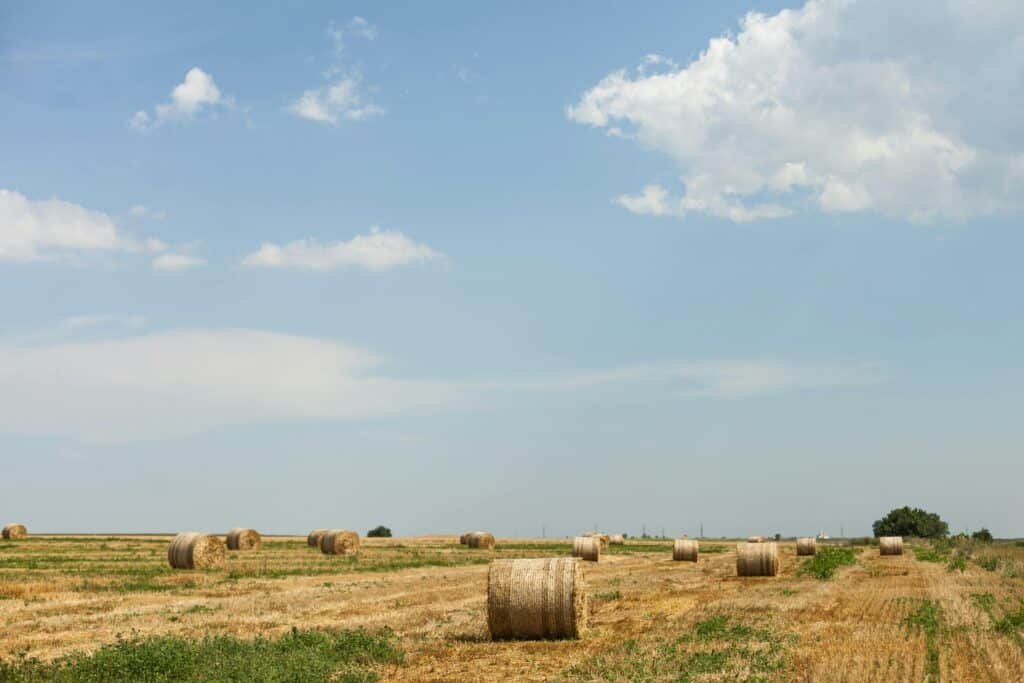Introduction
For farmers and livestock producers, hay is a valuable resource that needs to be protected from weather, pests, and storage challenges. Spoiled hay not only reduces feed quality but also increases waste and financial loss. One of the most effective solutions to minimize spoilage is using bale net wrap.
1. The Problem of Hay Spoilage
Hay bales are vulnerable to:
- Moisture penetration from rain or ground contact.
- Mold and rot, which reduce nutritional value.
- Loose binding, leading to bales falling apart during handling and storage.
Without proper protection, up to 25–30% of hay can be lost due to spoilage.

2. The Role of Bale Net Wrap
Bale net wrap is a durable polyethylene mesh designed to secure round bales tightly. Compared to traditional twine, it offers several advantages:
- Better Coverage: The net wrap spreads evenly across the bale surface, reducing water infiltration.
- Tighter Binding: Helps maintain bale shape, improving stackability and storage.
- Time Efficiency: Wrapping with net requires fewer revolutions than twine, saving valuable baling time.
3. How Bale Net Wrap Prevents Spoilage
- Moisture Protection: A well-wrapped bale sheds water more effectively, keeping hay dry.
- UV Resistance: High-quality net wrap resists sunlight damage, extending bale life in outdoor storage.
- Reduced Airflow: Tighter wrapping reduces oxygen exposure, slowing microbial growth.
- Less Waste: Minimized leaf loss during handling ensures more nutrients remain in the bale.
4. Best Practices for Using Bale Net Wrap
- Choose the Right Wrap: Look for UV-resistant and strong net wrap compatible with your baler.
- Store Bales Properly: Place on well-drained ground or pallets to prevent bottom spoilage.
- Cover When Possible: A tarp or shed adds extra protection in rainy climates.
- Monitor Wrap Quality: Avoid using damaged or weakened wrap for long-term storage.
Conclusion
Preventing hay spoilage is essential for maximizing feed quality and reducing farm losses. Bale net wrap provides an efficient, reliable, and cost-effective way to protect hay from weather and handling damage. By combining high-quality net wrap with smart storage practices, farmers can preserve more hay, save time, and ensure better feed for their livestock.

